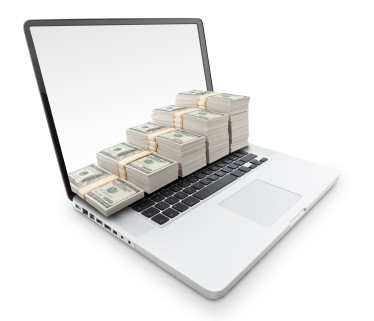How Much Money Should I Keep In a Savings Account
Post on: 19 Июль, 2015 No Comment

Determining An Appropriate Level of Liquidity for Your Own Savings
Not everyone should have the same amount of money put aside into a savings account. How much money should you save? Here are some important considerations. Alberto Coto / Stockbyte / Getty Images
You can’t really begin a successful investing program until you have a good foundation under your financial feet. A huge part of that foundation is your liquidity situation. In accounting terms, liquidity refers to the resources on your balance sheet that are in, or can be easily, cheaply, and quickly converted into, cash. The highest priority for liquid assets are that they are going to be there when you reach for them, and safety of principal is never at risk.
For the small investor, the most popular way to park money aside for liquidity purposes is to use a savings account. We’ve talked about savings accounts in the past few days, including an article I wrote called 5 Things You Should Look For In a Savings Account . that detailed a list of the features or behaviors you should demand from your bank or financial institution. With all of that behind us, we still need to answer one very important question.
How much money should you keep in a savings account?
The answer is simpler than it might appear. It’s going to be based upon a handful of factors, including:
- The stability of your employment situation or other primary source of income
- The level of fixed expenses you incur every month
- Your desired standard of living
- The probability of large demands on your resources arising on short-notice
- How much cash on hand you need to feel secure, which is purely an emotional consideration that will differ from person to person and even from year to year based on the stage of your life
Let’s take a moment to examine a few of these more in-depth so you can get an idea of the cash levels that might be appropriate for your personal savings account.
How Stable Is Your Income Situation?
Are you a tenured professor at a prestigious Ivy League university with dozens of published books, all producing a very stable, lucrative, six-figure income or are you a temporary worker in a seasonal industry that faces boom and bust times so you never know if you are going to have a job next quarter? Even if the incomes were identical, the latter person would need to have several times the level of cash sitting in a savings account to adequately protect his or her family from potential disaster.
Another alternative is to follow what I call the Berkshire Hathaway business model. Over the course of many years, you can greatly reduce your risk by constantly adding new streams of income. Whether you are an attorney who owns a chain of ice cream shops, or a geology professor who has built up a portfolio of master limited partnerships gushing oil, natural gas, and pipeline profits into your checking account, the more diverse your cash flow, the less you have to rely on a single activity or operation to keep the lights on and food in the pantry.
How High Are Your Fixed Expenses?
The next step when trying to determine how much money you should keep in a savings account is to look at your fixed expenses. If you lost all of your income overnight, how many months could you maintain your standard of living? Most experts recommend a six month reserve. Personally, I prefer one to two years. It’s more ambitious, but you don’t have to do it overnight. Another way you can achieve it is by reducing the cash demands on your family’s finances. For example, hurry up and pay your mortgage off early. With no mortgage payment, your emergency fund sitting in a savings account doesn’t need to be as large, giving you more money to invest or spend.
Are You Exposed To Any Large Demands On Your Cash Reserves?
Are you facing the threat of a major lawsuit? Is there the potential of significant medical bills? Consider hoarding cash in a savings account. Worst case scenario, you have too much money on hand. That’s a high class problem to have. If nothing comes of it, you can always buy an asset to generate passive income next month or next year.
How Do You Feel Emotionally?
This differs for each of you, and it may even change based on the phase of your life. How much money would it take, sitting safe and secure in a savings account, for you to sleep well at night and not worry? You probably have a figure, even if it is irrational, that comes to mind immediately. For some people it is $10,000. For others, $100,000. Billionaire Warren Buffett likes to keep $20 billion minimum around, though he parks it in Treasury bills, bonds, and notes, not a savings account. We each have a number.
Figure yours out by being honest with yourself and then find a way to make it happen.
Originally published on About.com on March 31st, 2013 at 3:51 a.m, CST














